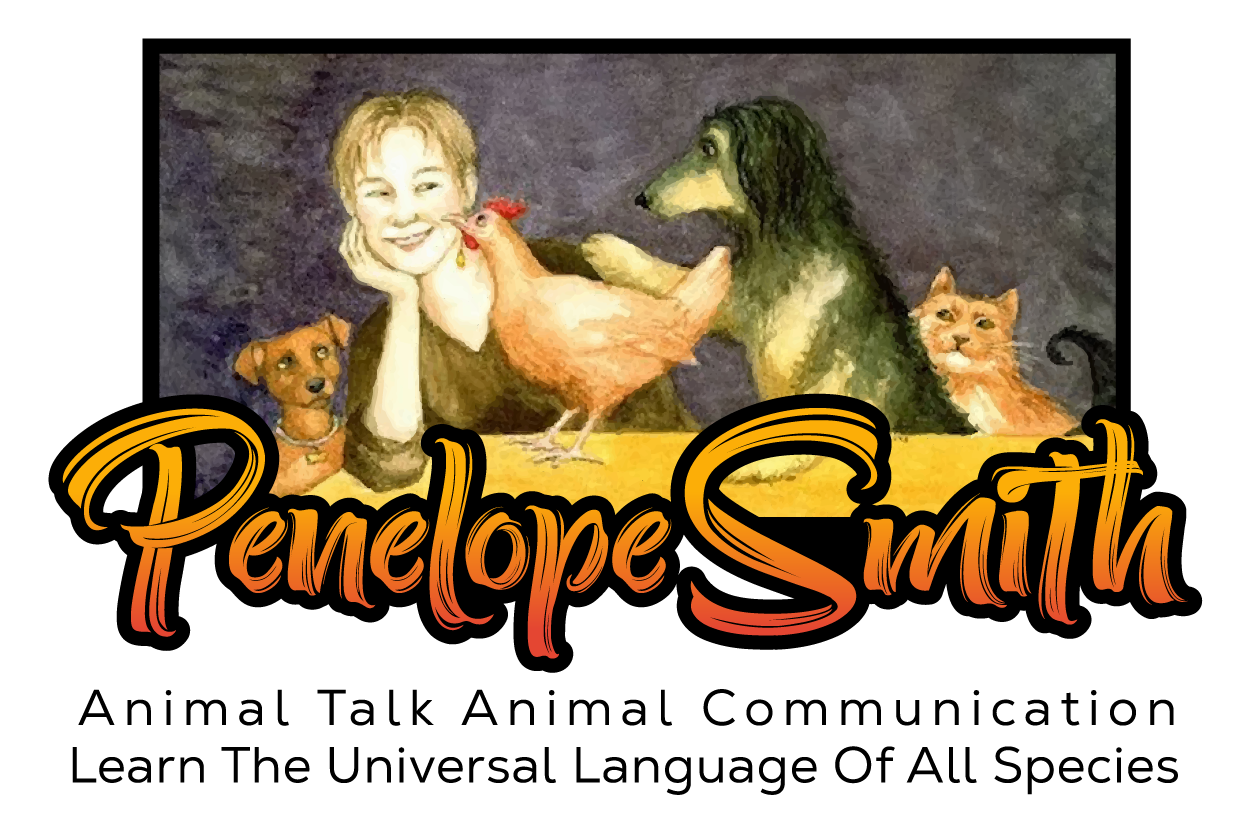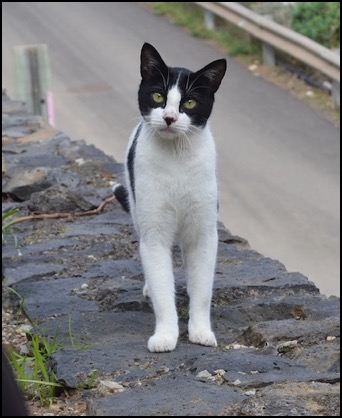Finding Lost Animals - Part 1
February 06, 2018 Filed in:
Finding Lost AnimalsThe Challenge
People often consult with animal communicators to help find lost animal companions. It can be one of the most difficult things animal communicators are asked to do and frustrating for clients urgently wanting their animal back home. Both the lost animals and their people are under stress. Animals often cannot communicate well where they are due to confusion and disconnection from familiar places.
In their desperation to find their animal friends, people often consult with a number of animal communicators and receive different answers. This letter (edited for length and clarity) illustrates a common bewilderment.
My cat disappeared from home ten months ago. We hung posters around town, even offering money, we asked garbage collectors if they picked up a dead animal, we called the humane society, and we searched the streets every day. I received calls with false trails that turned out to be similar cats. A woman who puts out food for stray cats said she saw my cat two times, but when I went, I never saw her. The woman never saw her again.
I decided to call animal communicators. The first communicator told me my cat stayed on the street in similar places that I had searched. I looked for her there, I put up posters, I asked people, but nothing. Later I tried with an animal communicator who did dowsing, but he told me a very big area to search. He was the first person who told me she was in a house, I put posters in that area but nothing. Then I tried with other communicators. One of then told me she died, but the rest said she was in a house with someone but said different areas, and then one told me again she was on the street.
I don’t know what to think. How is possible all the communicators gave different versions and different places; what is the truth about this?
There are many facets to the art of finding lost animals. I will share my own and other animal communicators’ insights in this article series.
Guiding Them Home
Finding lost animals formed part of my animal communication practice throughout the decades that I did consultations. I enjoyed guiding animals home, helping people to assist their own animal friends to find their way home, remotely spotting the location where the lost animal was hiding, trapped, or held so people could go to them, or helping people with their grief should an animal be found to be dead.
I often found that just contacting animals with a clear and compassionate focus helped the animals to come home within minutes or hours. I had a high success rate in helping to find lost animals who were still alive.
I was being interviewed on a radio show where people could call in with questions. A person called to say that her cat was lost. (No pressure on me to find the cat instantly, gulp!) After asking for the cat’s name and physical description, I connected with the cat. I could see and feel him hiding under a shed in the back yard, which was visible from the kitchen window. I asked the cat to come out and the woman, who had gone to her kitchen window, screamed that her cat was squeezing his way out from under the shed. On a live radio show! Whew!
What Can Get in the Way
I found the chances of finding animals increased if they were lost for hours or days, rather than weeks, months, or years. The longer time away could add much more confusing information into the mix, especially if the animal had moved around a lot.
People’s disturbed emotional state and their ideas about where the animal might be could act as a hindrance to attaining clear contact with the animal. The ideas, pictures, and feelings of others who speculated or tuned-in and communicated about the lost animal could also muddy the clarity of the energetic field in the animal’s location(s).
To handle this, I helped people to calm their agitation at the beginning of our consultation. Then I asked clients to give me only the name and description of the animal and information about the animal’s initial disappearance, not anyone’s ideas about where the animal could be. I then gave my best perceptions of what happened to the animal, including where the animal might be and how to help the animal get home.
If their animal friend did not return home soon, some distraught humans would call frequently and at any hour, desperate for more information. I learned to set limits on how much time I would give to find lost animals, which worked out to be effective. It also didn’t work well for me to do lost animal sessions in-person by traveling with a client and seeking the location of the animal through the communication and perceptions I received as I moved around. I had more clarity when I did the consultation at a distance by phone.
Reservations
Sometimes I got incorrect information, as in one instance when I located a cat who only looked like the animal in question. However, most people appreciated any help I could give. It was after the following incident that I became more cautious in pronouncing, even with my usual reservations, that an animal was “dead.”
A man wrote to me that his cat had returned weeks after I communicated that I perceived he died. The man lambasted me for causing his wife and him severe shock and grief. He implied that I probably caused harm to other people in this way, too. This client was not so overjoyed that his cat had come back that he was willing to forgive me for the error I made in interpreting his cat’s “dead or alive” status.
After receiving this client’s letter, I immediately re-evaluated my animal communication practice as to whether I was indeed harming others. If I had not been so successful in helping other clients to find lost animals and with other situations, I might have quit trying to help people to find missing animals again.
I wrote a letter (in the days before e-mail) to the upset client and returned the check he had sent. I told him I was deeply sorry for my error and his grief. I felt complete in doing as much as I could do to right the upset and create balance.
Individual Handling
Some clients who were not familiar with animal communication or spiritual realities were not ready to hear harder “truths” such as, their animals had decided to leave to fulfill another part of their life purpose and were happy with some other family or the animals had been killed. It did not matter how gently and compassionately I would state what I received from or about their lost animal friends. It did not serve these people to relate these hard-to-accept perceptions that often could not be confirmed in the physical world.
Relaying this type of information did not help these clients’ relationship with their animal friend and did not give them the closure they often desired. It only increased their feelings of loss. In cases where I sensed that stating exactly what I perceived would only cause more harm than help, I might relay a more neutral or helpful truth such as, “I did not get any information that was helpful in finding your animal friend.”
In most cases, as I remained in compassionate telepathic contact or spiritual attunement with the human and animal clients, listened deeply to all, and honored their state of being, along with their truth, I found the right words and feelings would come forth from me that had great benefit. My dedication to the greatest service for all, rather than my ideas or a formula of how to relay communication, was foremost. Fortunately, with most clients, I could say what I perceived, so we could work with that information together for their benefit. I handled each case individually, guided by the Code of Ethics for Interspecies Telepathic Communicators, which states:
The goal of any consultation, lecture, workshop, or interspecies experience is more communication, balance, compassion, understanding, and communion among all beings.
When my consultation and teaching schedule became very full, I found the demands of lost animal consultations, including the extensive follow-up time clients often desired to find their beloved animals, led me to form a new policy. I set a limit of one phone consultation to help find the client’s animal friend. Often these sessions were helpful, and by setting the one-session limit, I could help many more people.
Skill and Talent
Skill in lost animal work can be developed utilizing techniques such as:
- questioning animals and receiving specific details,
- sensing the difference in energetic states and the spirit’s connection with the body,
- remote viewing,
- location dowsing,
- muscle testing,
- communicating with other animals or spirit guides to help find lost animals,
- shamanic journeying to find lost animals, and
- linking with lost animals to guide them home.
After practicing the demanding art of finding lost animals awhile, many animal communicators discontinue offering it as part of their services. Other animal communicators find they have a talent for it.
How You Can Help Your Lost Animal Friend
Learn to calm your mind and open clear reception so you can connect and communicate with your animal friend to locate and help them find their way home. My book, Animal Talk and the How to Communicate with Animals Basic Course audio recording set shows the way to get there.
More on Finding Lost Animals will be in the next blog post. Animal communicators are welcome to contribute to this blog topic. 



